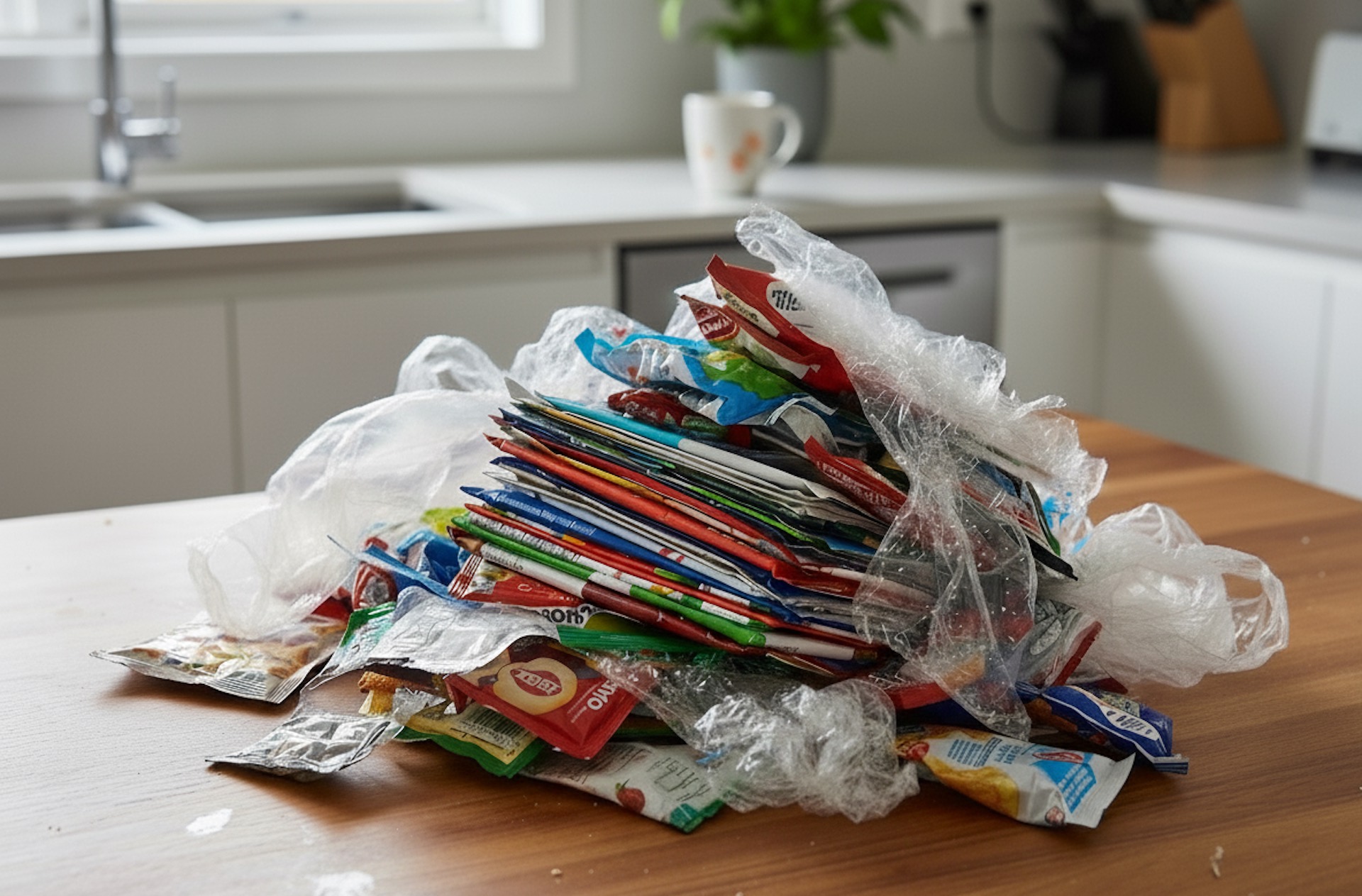UK recycling infrastructure is unprepared for flexible plastics by 2027
North London Waste Authority has warned that the UK lacks the infrastructure to recycle flexible plastics ahead of mandatory kerbside collections in 2027, risking stockpiles, exports and rising costs unless the government intervenes
 The UK lacks the recycling infrastructure to recycle flexible plastics once mandatory kerbside collections begin in 2027, North London Waste Authority (NLWA) has warned.
The UK lacks the recycling infrastructure to recycle flexible plastics once mandatory kerbside collections begin in 2027, North London Waste Authority (NLWA) has warned.
The waste authority notes that without major investment in processing facilities and a reduction in flexible plastic production, material collected from households will end up warehoused or exported rather than recycled domestically.
Cllr Clyde Loakes MBE, NLWA chair, said: "Unless the production of flexible plastics is greatly reduced in tandem with investment in infrastructure, much of the flexible plastic collected from people's homes will end up in a warehouse or on a container ship somewhere."
Flexible plastics such as crisp packets, bubble wrap and bread bags, constitute approximately 27 per cent of the UK's consumer plastic packaging but only 7 per cent of this is currently recycled. From March 2027, the Simpler Recycling legislation will make kerbside collection of these materials mandatory.
Projections suggest that by 2030, only 200,000 tonnes of the 1.7 million tonnes of flexible plastics placed on the UK market each year will be captured from households through kerbside collections. In 2023, just 12 per cent of local authorities collected flexible films at the kerbside.
NLWA has called for government intervention through two key measures: mandating higher proportions of recycled content in new products to stimulate market demand, and reforming the Plastic Packaging Recovery Notes (PRNs) system, which currently favours exports rather than domestic processing.
Infrastructure capacity concerns
NLWA’s warning follows the publication of The Flexible Plastic Fund’s recent report ‘The future of recycling flexible plastic packaging in the UK’.
This report was based on a three-year FlexCollect pilot, a collaboration between industry experts and ten local authorities that tested how to most effectively collect flexible plastics directly from UK households. It measured participation, costs and system readiness, and whether the existing recycling system could handle this new material stream ahead of the 2027 reforms.
The trial found that flexible plastic collections can be successfully integrated into existing services, but confirms that the UK lacks processing capacity to cope with the expected demand. Current UK facilities can only manage 25,000 to 50,000 tonnes of flexible plastic per year, and the report warned it could take a decade to develop large-scale food-grade recycling.
NLWA said the report underestimates the challenges for densely populated areas, particularly flats and shared housing. Cllr Clyde Loakes said: “We are concerned that the Flexible Plastic Fund’s report does not accurately represent these challenges and may overestimate the ability of dense urban areas to recycle flexible plastic.”
He added: “Densely populated urban areas face additional challenges in rolling out new recycling services. For instance, contamination is often worse in communal recycling bins; and high population turnover in these areas often impacts reliable participation.”
The authority stressed that while recycling is vital, cutting unnecessary packaging must remain the priority, warning that mandatory collections should not give producers the green light to increase the amount of flexible plastic placed on the market.





